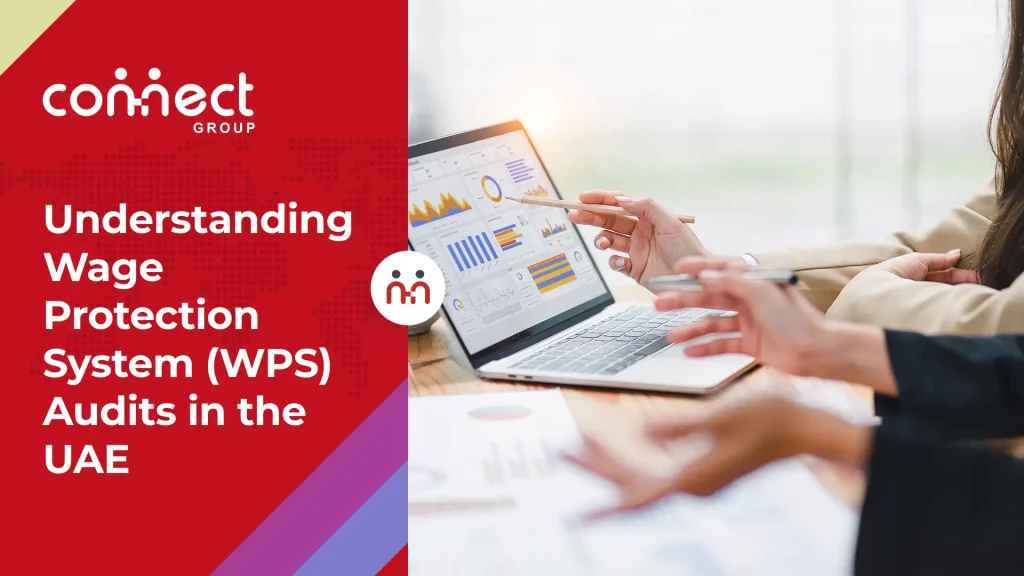Obtaining a free zone industrial license is an excellent way to enter Dubai’s thriving industrial sector. Dubai has used a variety of novel approaches to boost its economic growth. Every day, the city moves ten steps forward, breaking new ground in its economic sector. This is just one of the many reasons why establishing a business in Dubai is an excellent choice for both new and established entrepreneurs.
In this article, you will learn everything about how to obtain your Dubai free zone industrial license. Let us observe:
- What is the industrial sector?
- The industrial sector in the UAE
- Over the next decade, the UAE’s priority will be the industrial sector
- Everything you need to know about the free zone industrial license
- The benefits of obtaining an industrial free zone license
- The procedures for obtaining a free zone industrial license
- Documents required to apply for an industrial license in the Dubai free zone
- How can Connect Group help you?
1. What is the industrial sector?
The industrial sector is a sector of the economy composed of companies that assist other companies in manufacturing, shipping, or producing their goods. The industrial sector is classified as a secondary sector because the products and services it provides are primarily marketed to other businesses rather than directly to consumers.
Because the industrial sector is reliant on purchasing from businesses in other sectors, supply and demand in those sectors frequently drive the growth or contraction of the industrial sector.
1.1. The economic sectors
The economy is typically divided into five sectors, according to most economists. The industrial sector is often referred to as the secondary sector. Each sector is made up of distinct industries that all perform a common step in the manufacturing process.
Hence, you will learn about the other four economic sectors to gain a better understanding of how the economy works:

1.1.1. The primary sector
The primary sector handles raw materials. This sector’s distinct industries and businesses forage and harvest natural products, which the secondary sector; also known as the industrial sector, then uses to create the parts and products that they will sell to companies that manufacture and sell goods to consumers.
The following are examples of common industries in the primary sector:
- Agriculture.
- Mining.
- Forestry.
- Quarrying.
- Fishing.
1.1.2. Tertiary education
The secondary sector, or industrial sector, is followed by the tertiary sector. The primary industries and businesses in this economic sector complete and manufacture the materials, parts, and products created by the primary and secondary sectors and sell them to consumers.
Because so many companies interact directly with consumers, this sector is also known as “the service sector.” The following industries are common in the tertiary sector:
- Transportation.
- Tourism.
- Healthcare.
1.2. Subcategories of the industrial sector
Within the industrial sector, there are numerous smaller industries. Among the largest and most common are:
1.2.1. The automobile industry
Firstly, we have the automobile industry. The automotive industry manufactures the various materials and parts that go into the construction of cars, trucks, vans, and other automobiles. In this way, the automotive industry, especially when considering the industrial sector connection, refers to businesses that create materials and manufacture vehicles rather than dealerships or mechanics that sell and maintain vehicles.
1.2.2. The chemical industry
Secondly, we have the chemical industry. Chemicals are used in the chemical industry to create materials or products that are then used by other companies to make their products. Companies in the chemical industry primarily use chemical processes to transform natural elements such as oil, water, minerals, and natural gas into usable components for service-driven companies to manufacture their products.
1.2.3. Electronics manufacturing
Thirdly, the electronics industry is one of the most important in the industrial sector. Some experts further divide this industry to gain a more in-depth understanding of its many functions. The electronics industry primarily provides the electric parts and supplies required to manufacture and sell consumer and other types of electronics to the general public.
1.2.4. Industry of machinery
Lastly, we have the machinery industry. The machinery industry creates the machines and equipment required to create and manufacture consumer goods. This is a broad sector that includes a variety of businesses that supply machinery, equipment, and parts to other companies in a variety of industries and sectors.
The machinery industry, like most other industrial sector sub-industries, rarely sells directly to the public.
2. The industrial sector in the UAE
According to research, the UAE’s industrial sector is the most competitive in the Arab world. It was ranked 30th in the UN global rankings index; having risen five places since 2020 and nine places in four years, attracting the attention of global investors. The report Competitive Industrial Performance Index of the United Nations Industrial Development Organization tracks 152 countries.
Dr. Sultan Al Jaber is the UAE’s Minister of Industry and Advanced Technology, and he said something important. He said that the UAE is on its way to becoming a global destination for pioneering future industries, increasing investment attractiveness, and incentivizing advanced technology.
Hence, the UAE intends to double the industrial sector’s contribution to national GDP to AED 300 billion by 2031, from AED 133 billion currently. The plan, dubbed “Operation 300 billion”, was unveiled earlier this year to assist 13,500 industrial companies over the next decade.
Therefore, the government will provide financial assistance to the country’s industrial sector to support operations and improve competitiveness in export markets, according to the Ministry of Industry and Advanced Technology.
3. Over the next decade, the UAE’s priority will be the industrial sector
A top UAE official said that growing the industrial sector will be the UAE’s priority over the next decade to drive the national economy.
Sheikh Mansour bin Zayed Al Nahyan, Deputy Prime Minister and Minister of Presidential Affairs stated that the Covid-19 pandemic highlighted a gap in the UAE’s industrial sector when “pressure and demand for local products increased.”
Sheikh Mansour added that they were not paying attention to the industrial sector until factories in the UAE began working harder to meet the surging demand for local production during the pandemic. He stated that the industrial sector’s contribution to the UAE’s GDP increased by only 1% over the last decade, which he described as “sad and shameful.”
Hence, pharmaceuticals, food supplies, and the military are the three top priorities for the UAE’s industrial sector in the coming years, according to Sheikh Mansour. He went on to say that the UAE began developing vaccines in the pharmaceutical industry, which has sparked interest from neighboring countries.
3.1. There is more
The country has also signed knowledge exchange agreements to advance local food production technologies. Trust in the Emirati product is growing, Al Nahyan said, emphasizing that the UAE is working hard to attract foreign investors from all over the world and to create a competitive environment.
The UAE launched ‘Operation 300 billion last year, a 10-year comprehensive strategy aimed at making the industrial sector the primary driver of the national economy. The strategy aims to increase the sector’s GDP contribution from AED 133 billion to AED 300 billion by 2031, with a focus on the key sectors of food, agriculture, pharmaceuticals, petrochemicals, electronics, and future space industries.
Al Nahyan emphasized the importance of raising the level of education in the UAE to raise a generation of productive and professional Emiratis in the country’s industries on whom foreign investors can rely. The UAE has signed strategic partnerships with many countries from which we must benefit, Al Nahyan said.
Additionally, Sheikh Mansour stated that the UAE practices “full transparency” and provides a secure and dynamic business environment when it comes to inviting foreign investors. Investors will never come across legal violations, abrupt changes, or instabilities that could jeopardize their business.
4. Everything you need to know about the free zone industrial license
Let us first define what a free zone industrial license is. This license is available to entrepreneurs who choose an industrial-commercial activity. For example, any business that uses factory equipment, such as commercial chocolate manufacturing, will require an industrial license.
Another instance where a company would require an industrial license is when it is involved in the large-scale production or refinement of chemicals. It is also worth noting that the rules and regulations for obtaining a free zone industrial license may differ depending on the emirate in which your factory is located.
In Dubai, for example, it is required to have both a physical office and a warehouse facility. The following industries require a free zone industrial license:
- Food and beverage production.
- Textile manufacturing
- Refineries of petroleum.
- Chemical plant.
4.1. Prerequisites.
There are also several prerequisites that an investor must meet before applying for a Dubai free zone industrial license. These are the following:
- Office space. You will need a physical warehouse as well as office space in Dubai. In this case, a virtual office will not suffice. However, you will not have to look for an office space on your own. We can help you find the most excellent private or executive offices.
- Employees. Depending on where you set up your business, you will need a certain number of employees in an industrial space.
- Water and electricity. Depending on where your facility is located, you will need to contact Dubai Electricity and Water Authority (DEWA) to upgrade your facility’s water supply and electricity voltage.
- Transport. If your factory is located on the outskirts of Dubai, the cost of transportation of raw materials and finished goods may increase. However, the majority of free zones in the UAE are strategically located near seaports and airports, making transportation easier.
As long as your company’s lease agreement is current, you can always renew your free zone industrial license.
5. The benefits of obtaining an industrial free zone license
- Complete control of the company. Foreign investors can obtain 100 percent ownership of their company formation in free zones. You can also read our guide for expats.
- Profit repatriation in full. Profits from free zone companies can be repatriated to their home country. This allows them to transfer 100% of their capital to their place of origin without any restrictions.
- There is no corporate tax. According to UAE law, companies are not required to pay corporate tax on their business revenue, allowing you to keep all of your profits.
- There is no import or export tax. In contrast to the Mainland, free zones are exempt from all customs duties.
- The location is strategic. Dubai has world-class telecommunications, pioneering financial interconnections, cutting-edge industrial infrastructure, an e-governance system, and service sectors. The free zones’ location allows for extremely low-cost living.
- Global Interconnection. Dubai has a multi-national community that allows you to connect with a global business community.
- Several business activities. Free zones allow you to conduct a variety of business activities that require an industrial license and more.
- A process that saves time. For this reason, obtaining a free zone industrial license is relatively quick and simple.
- Registration is simple. Dubai allows you to register from the comfort of your own home. Therefore, you can submit all required documents to the free zone without physically being present.
6. The procedures for obtaining an industrial license
You will have to apply along with a business plan. After this, you must finalize the preferred warehouse by the business activity. Then, you will need to get an environmental clearance. Then, it is the turn of the license application. And lastly, you will have to do your visa application.
7. Documents required to apply for an industrial license in the Dubai free zone
Firstly, they will ask you for your business strategy. Next, they will need your passport photocopy. They will also require a copy of your visa. Lastly, they will ask you for your investor information (depending on the activity).
In addition, a specialist in company formation can assist you with all the documentation.
8. How can Connect Group help you?
Now you know why you should have a free zone industrial license; if you want to have a business related to the industrial sector in a free zone, you must have one. In addition, if you work with a great business setup firm, you will not have to worry about the process of obtaining a license.
For this reason, Connect Group oversees the entire process of obtaining your free zone industrial license. Hence, our expert consultants will walk you through the entire process, from regulatory requirements to free zone license costs and obtaining approvals from the authorities.

Contact Connect Group today to learn more about how to obtain your Dubai free zone industrial license. You can do it now! So do not wait and call us at +971 43 316 688. We look forward to answering all of your questions. You also have the option to reach us via email at [email protected]. Then, one of our agents will speak to you regarding all of your concerns.
Have you been searching for jobs for a long time? Try thetalentpoint.com. Here, you will find a variety of job offers that match your needs. Note that no information you send to [email protected] is being stored.




